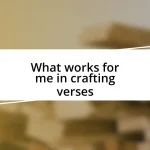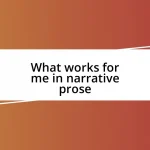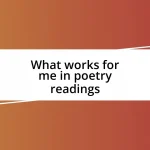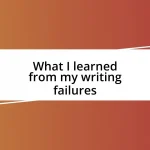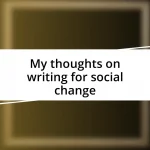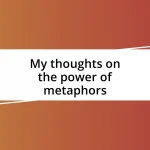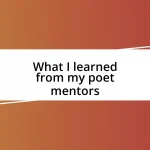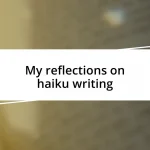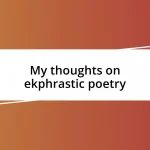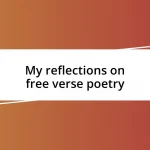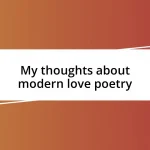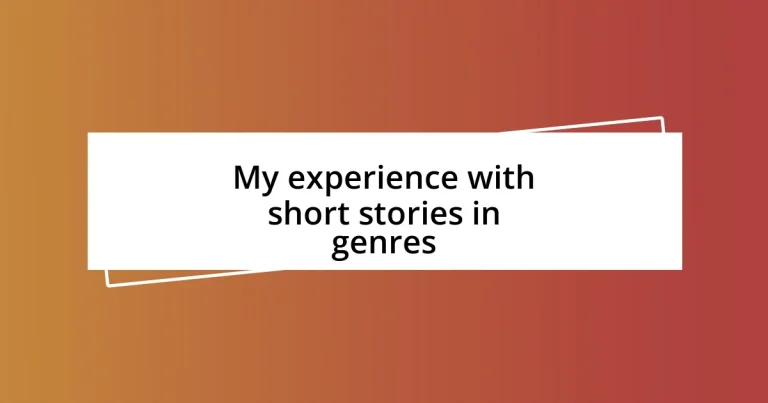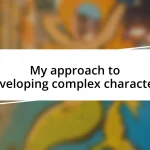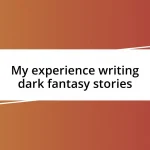Key takeaways:
- Exploring various short story genres enhances emotional responses and personal connections, such as the suspense in horror or the tension in mystery.
- Key elements of storytelling—including characters, conflict, setting, plot, and theme—are essential for crafting compelling narratives and deepen reader engagement.
- Writing techniques, like pacing in science fiction and emotional resonance in literary fiction, shape readers’ experiences and reflect real-life struggles and triumphs.
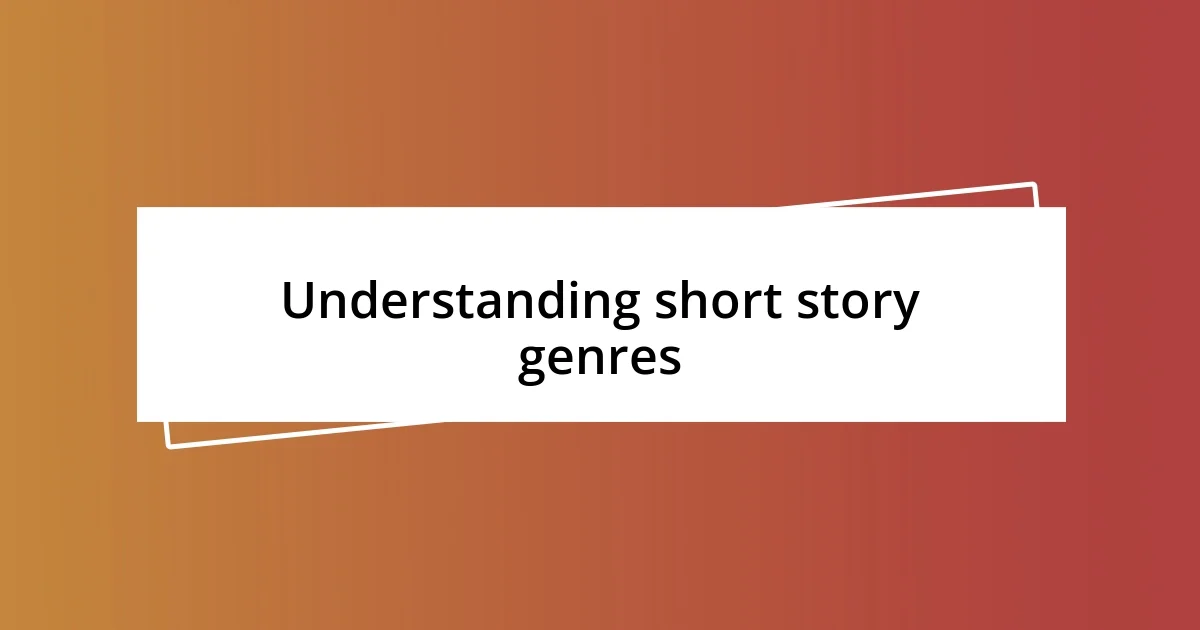
Understanding short story genres
When I first dived into the world of short story genres, I was overwhelmed by the variety. Each genre has its own flavor—suspense would leave me on the edge of my seat, while fantasy transported me to lands I could only dream of. Can you remember a time when a story completely swept you off your feet? That’s the beauty of exploring these genres; each offers a unique escape.
As I experimented with writing my own short stories, I discovered how genres influence tone and structure. For instance, in horror, I learned to build tension gradually, making my heart race alongside my characters. It’s fascinating how words can evoke such strong emotions; have you ever felt your pulse quicken while reading a particularly chilling tale?
Romance stories taught me the power of connection. I realized that it’s about more than just the plot; it’s the chemistry between characters that drives the narrative. Reflecting on my experiences, I can’t help but smile at how these stories have mirrored real-life moments of love and heartache, making every read feel like a personal journey.

Exploring my favorite genres
Exploring different genres has been an adventure in itself. One of my favorites is science fiction, which allowed me to contemplate endless possibilities. I recall reading a short story that depicted a future where technology intricately intertwined with daily life, sparking my imagination and urging me to question the world around me. This genre, with its twists and turns, often makes me ponder the impact of our current choices on tomorrow.
On the other hand, I’ve found joy in mystery stories. They encapsulate the thrill of piecing together clues, much like a puzzle. I remember biting my nails while uncovering layers in one gripping tale, where the ending completely flipped my perception. It’s not just about the “who done it,” but the journey of discovery that keeps me hooked, urging me to solve the riddle before the author reveals all.
Lastly, I cannot overlook the profound effect of literary fiction. These stories often delve into deep human emotions and relationships, resonating with my own life experiences. I vividly recall a short story that mirrored my struggles with belonging, making me cry and reflect on my own relationships. Each genre serves as a window into a different aspect of life, and I cherish how they collectively shape my writing journey.
| Genre | Emotional Impact |
|---|---|
| Science Fiction | Encourages contemplation of future possibilities |
| Mystery | Offers a thrilling puzzle-solving experience |
| Literary Fiction | Explores deep emotions and human connections |
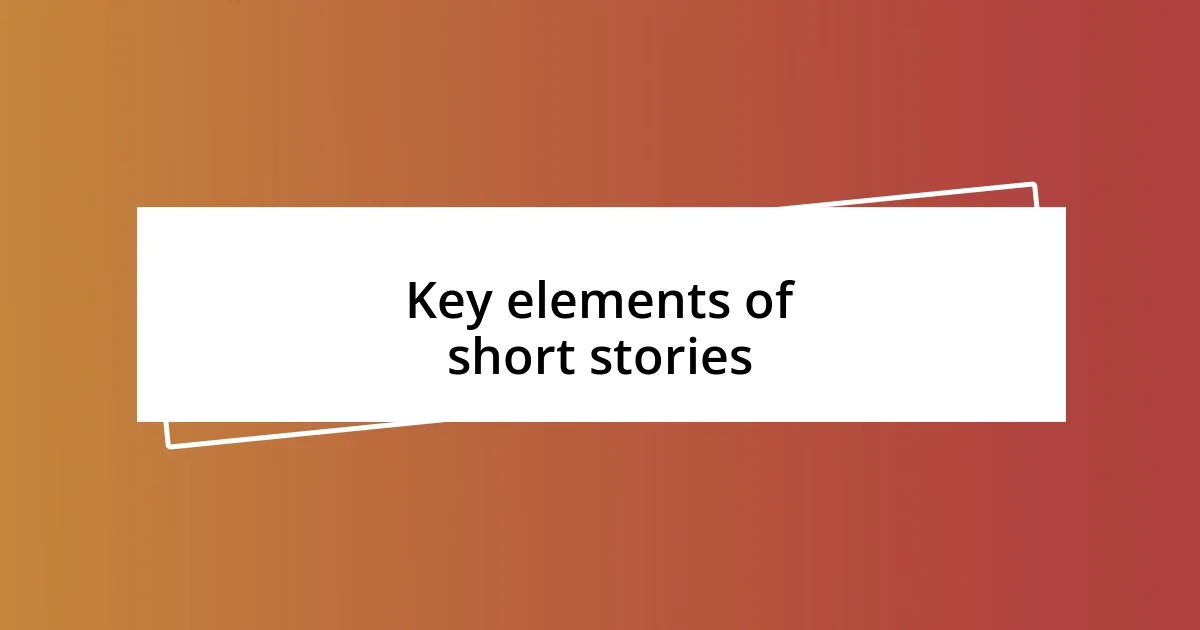
Key elements of short stories
Understanding the key elements of short stories has immensely improved my writing. Each story thrives on central components that create a compelling narrative. I’ve found that conflict is crucial—it pushes characters to evolve and keeps readers engaged. Setting also plays a vital role; it not only places the characters in a specific context but also shapes their actions and feelings.
Here’s a brief breakdown of these vital elements:
- Characters: Well-developed, relatable figures that drive the narrative.
- Conflict: The central challenge or problem that creates tension and propels the story forward.
- Setting: The time and place where the story unfolds, providing context and atmosphere.
- Plot: The sequence of events that shape the narrative arc, often structured with a beginning, middle, and end.
- Theme: The underlying message or concept that resonates with readers on a deeper level.
As I explored these components in my own writing, I discovered the art of subtext. Crafting dialogues that hinted at deeper emotions or motivations made my characters more compelling. Once, while working on a short story, I struggled to convey my protagonist’s internal battle. I scribbled down her actions, only to realize that her silence spoke louder than words. This experience taught me that sometimes what isn’t said can leave a more profound impact than the dialogue itself.
Incorporating these elements seamlessly transforms a basic narrative into an engaging story that lingers in readers’ minds. The interplay between character emotions and plot twists can evoke powerful responses. One poignant moment in my writing came while exploring a character’s desperation. I vividly recall the chill I felt as I drafted her gripping decision, realizing it mirrored choices I’ve faced myself. These stories become not just a journey for the characters but also a personal exploration for me as a writer.
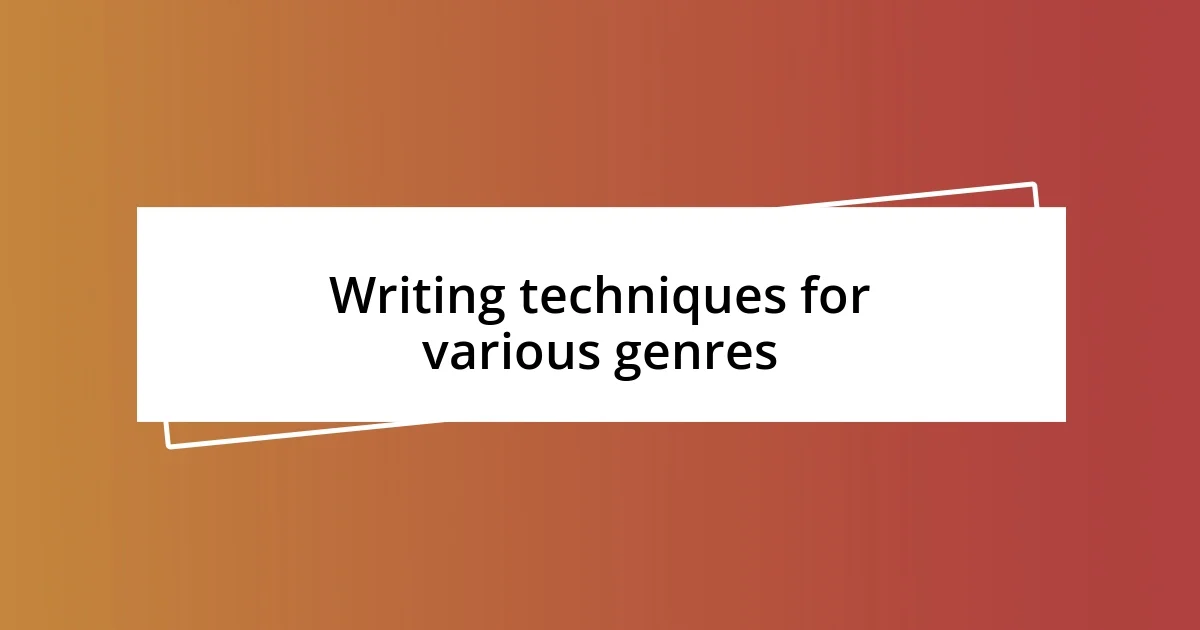
Writing techniques for various genres
When it comes to writing techniques in various genres, understanding pacing is crucial. In science fiction, for example, I’ve learned that pacing can create tension and curiosity about the unknown. I recall crafting a scene where a spaceship was racing against time to escape a collapsing star. By speeding up the action with shorter sentences, I could almost feel my heart racing alongside my characters. Do you ever notice how the rhythm of your writing shifts the reader’s experience?
In mystery stories, I found that foreshadowing is an invaluable tool. It’s like planting seeds that blossom into revelations later on, keeping readers engaged and guessing. I remember writing a seemingly innocuous line early in one story about a hidden door. When that door finally came into play, it transformed the narrative in a way that surprised even me! It made me appreciate how each detail can contribute to the overall suspense and excitement.
Jumping into literary fiction, emotional resonance is what truly sets a piece apart. Here, I focus on crafting moments that reflect real-life struggles and triumphs. There’s a short story I penned about the ache of loss and longing—it was cathartic to pour my own emotions into that character’s journey. Have you ever felt a character’s pain mirror your own? I believe this connection can make readers pause and reflect, enhancing the story’s impact. These techniques are not just tricks; they form the backbone of how we communicate our thoughts and feelings through various genres, shaping an unforgettable narrative experience.
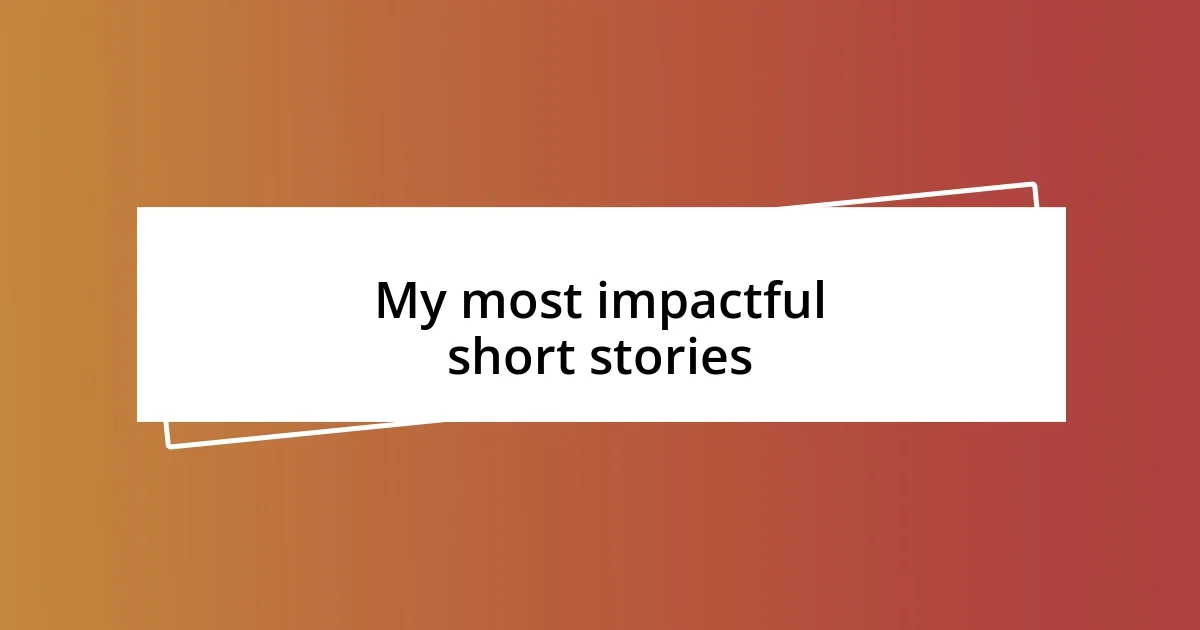
My most impactful short stories
One short story that truly left a mark on me was about a young girl navigating a complicated friendship. As I wrote her struggles, I drew from my own experiences of feeling misunderstood in my younger years. There’s something about capturing that raw, vulnerable emotion on the page that resonates so deeply. Have you ever read something that felt like it mirrored your own struggles? That connection is what I aim for in my writing—it’s what makes a story feel real.
Another impactful story emerged from an exploration of loss. I vividly recounted the moment when a character had to let go of a cherished memory, and in doing so, I reflected on my father’s passing. I could almost feel the weight of her grief echoing my own as I wrote. It was a cathartic experience; I realized that sometimes, writing can serve as a therapeutic outlet to process our emotions. This connection between life experiences and storytelling is something that often enriches my work.
Then there’s the tale set in a dystopian future where music was banned—something I crafted after feeling overwhelmed by negativity in the world. I remember feeling a surge of passion as I let my characters rebel through song. It made me realize how powerful art can be, even in dire circumstances. Have you ever found a piece of writing that inspired you to express yourself in a new way? That’s the kind of transformative impact I aspire to achieve with my stories. Each narrative, deeply personal and rooted in my emotions, shapes not only my growth as a writer but also the reader’s experience.
